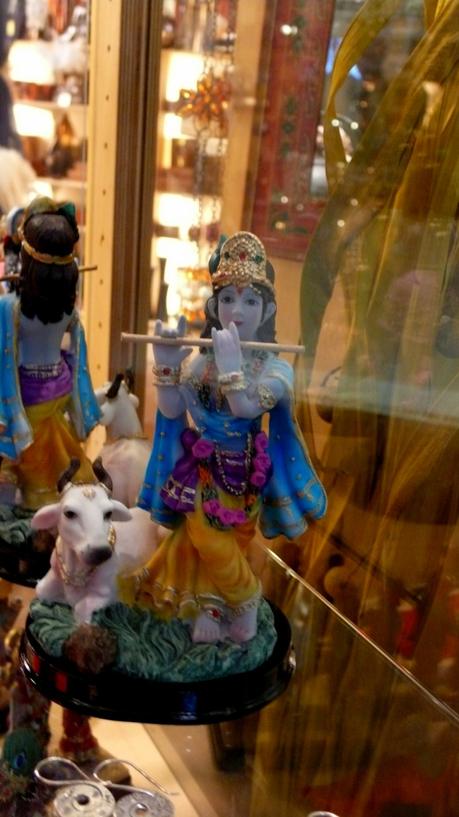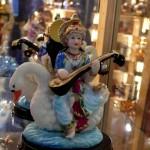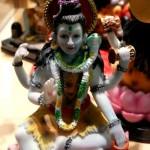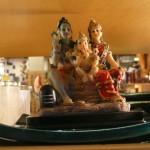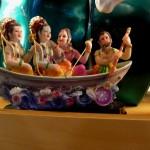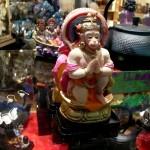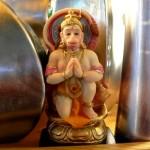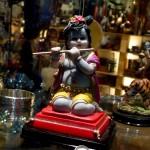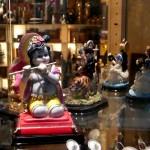People from the West often feel irritated when they come into contact with the many deities – and masters – worshipped in India. They ask, silently or aloud, what’s the purpose of all this? There are religions which condemn these worships as polytheistic or erroneous beliefs. They argue that there is only one God and monotheism is the only true belief… Yes, of course, there is only One but… comes to my mind. But what?
Some weeks ago I noticed the irritation about the plethora of divine beings with a friend. I know it only too well, this feeling of getting lost:
For many years, this has been an undercurrent in my life. I oscillated between Western and Eastern views of the world. I was striving to bridge the gap. At times it seemed to engulf me. I feel a fascination for Eastern wisdom but at the same time alienated by the many contradictions of eastern practical life, which is often at quite a distance from the heights of their sublime concepts. I noticed, however, that with the years I increasingly perceive the underlying unifying background and came to love the multiplicity.
Over 40 years ago, I came to the house of a member of my then-meditation group and saw there many statues – of Shiva, Ganesha, Krishna… This man had a big collection of partly costly Indian idols of gods. I had no relation to them, I felt disconcerted and at the same time I felt a strange fascination.
A few years later, I started studying Comparative Religion as one of my secondary subjects at University to get a deeper unerstanding. Later, I came into contact with theosophy and anthroposophy. There I learnt that in ancient-most times man lived with natural clairvoyance and could directly perceive the great divine beings of the subtle realms which he revered as Gods, knowing very well that they were facets of the One unknowable source of existence, which he called God. There were guardians (priests-initiates) who showed the way to this sublime vision. In temples and mystery schools the keys to direct experience were safeguarded. With the course of the ages, however, the epochs became darker and the knowledge got lost. Belief replaced experience and jealous religions fought for their God-systems as the only right ones. With the advent of modern critical thought and materialistic sciences the religious beliefs got ridiculed as superstition and accepted merely as a kind of social service.
Now, in the Aquarian age, when more and more people turn again inward and discover the subtle realms, a more differenciated view of the subtle worlds re-emerges. The “Gods are returning”. By becoming aware of the sublime beings of light, the Devas, they start working with us. They bring a splendour into our life which cannot unfold otherwise. Many times, I witnessed this radiance of subtle light shining into the surroundings. To perceive this light, which is nourished from behind, you have to open your subtle eyes; otherwise the curtain remains closed.
Indian Gods in shop windows at Berne, Switzerland, 24 December 2008:
